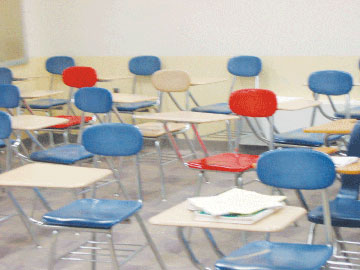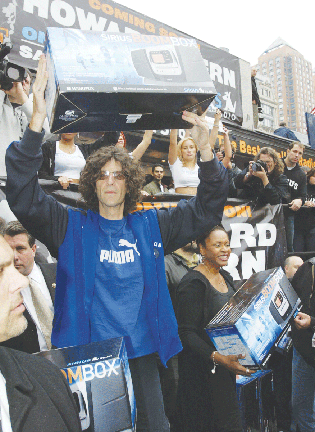CPCS, Fonteyn Talk Dean Search
October 28, 2004
Provost Paul Fonteyn last week told members of the College of Public and Community Service he was resolute on finding a wide array of candidates for the search for a new college dean.
“I’m determined to get a very deep pool for you,” he said.
Fonteyn met last week with over twenty CPCS staff and faculty, a week after an ad for a new dean of the college in the Chronicle of Higher Education led to a re-opening of wounds between the provost and the college. College officials were unhappy with Fonteyn for sending out an ad they charged did not accurately describe the college and ignored several of their suggestions and concerns.
“It wasn’t in bad spirit,” said Fonteyn, stating that he was under time constraints and anxious to get the ad out, which is also appearing in Black Issues in Higher Education and Hispanic Outlook in Higher Education. But several college officials argued that the way the ad is written may attract the wrong kind of candidate for the college. “If it’s put a certain way, you can get as large a pool as you want, but they may not necessarily be people who would fit the college,” said Carroy Ferguson, associate professor in human services. He added that there was no mention of familiarity needed with competency-based education, which the college specializes in. “An ad never describes everything,” Fonteyn responded. “It’s all part of getting a deep, rich pool.” Fonteyn went on to say that candidates could go to the college’s website, and they would get questioned by the search committee on competency-based education. Faculty members also asked why the deadline for applications in the ad, which they had pushed back to December 15, was moved back to November 15 in the final version that was sent out. People apply in the first month that they see it, the provost said, adding that the aim was towards enhancing the chances of getting a “deeper, richer pool.” Members also questioned why their suggestion of including a mention of the AQUAD, a recent evaluation of the college and perceived by many college members as agenda-setting for the next dean, was taken out of the ad’s final draft. AQUAD is not a common term in the United States, Fonteyn said. Associate Provost Winston Langley added that candidates would still look at the review. “I would imagine a candidate would want to do that,” he said. “I think it was more of whether the candidate would be confined solely to the AQUAD.”
Ferguson asked if the final list of the search committee members could be run by the college.
“You’ll know who they are. It won’t be a secret,” Fonteyn said. “I’m trying to follow normal university policy.”
The provost noted that the college had submitted some names, as had the Faculty Council. He said he would put together the final list and present it to Chancellor Keith Motley for the final sign-off within a week. The committee would soon after design its agenda and elect its chair. The national search aims to replace Ismael Ramirez-Soto, who stepped down in September 2003, becoming a faculty member. He filed a complaint with the Massachusetts Commission Against Discrimination last summer against the university.
Speaking a day earlier to the Undergraduate Student Senate, Fonteyn said there will also be opportunities for students to participate in the process. “There’s always open forums for students to meet the candidates,” he said. On previous searches, students have reportedly served on the committee.
By spring, the search committee is expected to have a short list of four to five people that will be brought to campus to be interviewed by the community and himself. “My participation, until the final stages, is pretty minimal,” Fonteyn told the crowd of CPCS faculty and staff. “It’s no different from what I’ve done with everybody else.”
Some among the faculty were not completely satisfied with the answers provided by the provost. Asked if Fonteyn had answered his questions, “he did and he didn’t,” said Ferguson. “He did in a sense in saying this is what he’s doing with other colleges,” he said, adding that he thought this was not completely true, since the search committee usually writes up the ad, when this time, citing time constraints, the provost’s office wrote it.
“We thought the meeting went generally well,” Langley said. “The provost heard them, and as will be seen, will be making every effort to align what he has always done with the other colleges with some of what CPCS seeks.”






















































